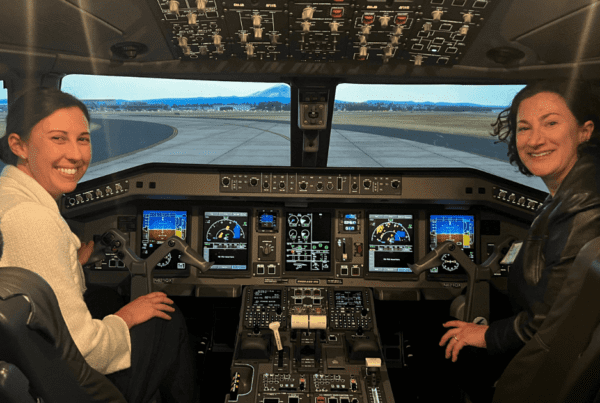Highlights | Welcome, trainees
- The UW School of Medicine, through the Graduate Medical Education (GME) Office, sponsors over 1,500 residents and fellows (trainees) each year.
- This year, GME welcomes 471 new trainees.
- Current residents and fellows recommend new trainees focus on balance, take care of their mental health and learn from their patients.
This year, UW Medicine Graduate Medical Education is welcoming 471 new trainees. Each year, UW Medicine sponsors over 1,500 residents and fellows, which means that about one in six physicians is a trainee — making up a significant part of our physician population.
“Our residents and fellows play an important role in caring for our patients at UW Medicine, from providing exceptional care to contributing to our research and education efforts,” says Tim Dellit, MD, chief medical officer for UW Medicine, executive vice dean for clinical affairs in the UW School of Medicine, and president of UW Physicians. “We are excited to welcome our incoming trainees.”
To become eligible for specialty board certification, doctors must complete residency training following medical school. Trainees care for patients under the supervision of an attending physician while learning their specialty. They spend between one and seven years in their program before applying for board certification. Many residents pursue additional, subspecialty training as fellows.
“It is my pleasure to welcome our incoming trainees as they set out to achieve their career goals and develop their sense and interpretation of the physicians they want to be,” says Byron Joyner, MD, vice dean of the Office of Graduate Medical Education (GME). “The GME Office is here to support you on that journey.”
The top 3 pieces of advice for incoming trainees
Current UW Medicine residents and fellows share their advice for a fulfilling and successful GME experience for incoming trainees.
Focus on balance
Advice from Omeed Alipour, MD, Fellow, Department of Gastroenterology
“I recommend keeping a focus on balance in your life during residency and fellowship. There will always be more to study or do, but it’s important to set boundaries with how much work you ‘bring home’ with you. In time you will learn everything you need to know, but don’t forget to take regular time off for exercise, meditation, friends and mental health.
“I put a lot of extra stress on myself during my intern year — not only is it unsustainable long-term, but it probably doesn’t help you absorb information or grasp concepts of your specialty any faster. Setting aside a small amount of time each day and week to read or work on research goes a long way (just make sure to take advantage of beautiful Seattle when it’s nice out!).”
Advice from Garvit Khatri, MBBS, DNB, Resident, Division of Nuclear Medicine, Department of Radiology
“Compartmentalize and prioritize. At the age that we start our residency, most of us, in addition to professional responsibilities, have many personal obligations that we fulfill — be it housing, marriage, kids, family events, parents, awards, surviving residency, doctor appointments, etc. A balanced personal life will have a very positive impact on your overall residency. Striking this professional and personal balance requires methodological segregation and addressing tasks in terms of priority.
“A resident is always juggling many things at a time. I was new to Seattle when I started my residency. Choosing an ideal strategic location at that time was very important and a priority. I made an extra effort to select a good rental location very close to work. This helped me save on traveling, sleeping hours and parking money.
“Over the years of residency, this ‘mantra’ has helped me keep my focus on achieving all the small and big goals. For example, I was able to enjoy my residency, explore the Pacific Northwest, find the love of my life, participate in educational and quality improvement committees, and publish a few award-winning papers as well. I plan to carry this mantra with me in my future life to become a successful academic abdominal imager.”
Take care of your mental health
Advice from Ivonne Beltran, MD, Resident, Family Medicine
“You may experience overwhelming emotions at unexpected times. As an intern/resident, you deal with complex social situations and very sick patients that may be at their worst. Connect with mentors, colleagues, friends and therapists about these emotions so that you can process them in a healthy way.
“The beginning of residency is challenging, and you may find that you do not have answers for your patients. That is OK! You have many people around you ready to support you through this journey. Do not forget you ARE a learner, so you are NOT supposed to have all the answers. Imposter syndrome is real, and it will affect you throughout your whole career. Find resources and prepare mental tools to help you address this syndrome.
“I learned this advice from mentors, colleagues and experiences. Reflection on moods and situations I have experienced has been important for me to understand what I need to stay mentally healthy. I have wonderful mentors and colleagues who have shared their vulnerabilities and shared tactics they used to address life in residency. It has helped me be open to my vulnerabilities and stay true to myself. This has fostered more professional and personal growth to become an overall better doctor and person.
“My mental health is protected when I use resources and ask for help.
“Additionally, as a soon-to-be senior, it will also help me guide those I am leading and help them prioritize their wellness. I believe being open about vulnerabilities helps improve systems and society overall.”
Learn from your patients
Advice from Tyler Gutschenritter, MD, Resident, Department of Radiation Oncology
“Every patient interaction provides an opportunity to learn about medicine and, more importantly, life beyond medicine. This is extremely helpful in keeping focused and providing purpose during the arduous and long days of residency.
“For most of us, this advice is quite self-evident during the first days of residency when we have more questions than answers after seeing each patient. As I progressed through residency, this insight was apparent during the difficult discussions with patients for whom there was no ‘simple’ or ‘good’ solution to their quandary and was fortified in the discussions with faculty mentors that often followed these tough days.
“Following this advice has made it easier to acknowledge my areas for growth and accept that I will never have all of the answers. Moreover, it provides an impetus to persevere when the learning is uncomfortable and the lessons are tough. Residency will eventually come to an end, but you will always continue to learn and gain pearls of wisdom from your patients.”
Advice from Vince Raikhel, MD, Chief Resident of Quality and Safety in the Department of Internal Medicine
“Every interaction with a patient is an opportunity to grow as a physician, learn from the person you’re caring for and improve the system in which we work.
“Early in my intern year, I was pulled to cover a colleague for a week in the Harborview Medical Intensive Care Unit (MICU). It was my first time working in an ICU; in fact, it was my first time ever working at Harborview. Early one morning, I was called to a patient’s bedside; a few minutes later, they went into cardiac arrest. The resuscitation was a blur of activity with a support team that seemed to grow by the minute. I was unsure of my role, unclear of the procedures that were being undertaken, and insecure about how I could help my patient. After what seemed like an odyssey of resuscitation, the patient regained their pulse. While I was sorting through the fog of what I had experienced, jubilant that the patient had survived, the resuscitation team huddled together and asked: ‘What could we have done better?’
“Being pulled for an extra week in the MICU ended up being a transformative experience. While the Harborview Code Blue team (cardiac or respiratory arrest response) achieved their primary goal for this patient, they immediately sought to grow from the experience and improve their work for the next patient. Through this experience, I met several mentors whom I am still collaborating with today. It empowered me to frame my successes and failures as opportunities to continue developing, learning and improving. And it sparked my interest in finding areas for growth within our healthcare system and striving to make them better for our patients and the staff that care for them.”
Editor’s note: Responses were lightly edited for length, clarity and style.
Photo caption: Radiology residents


